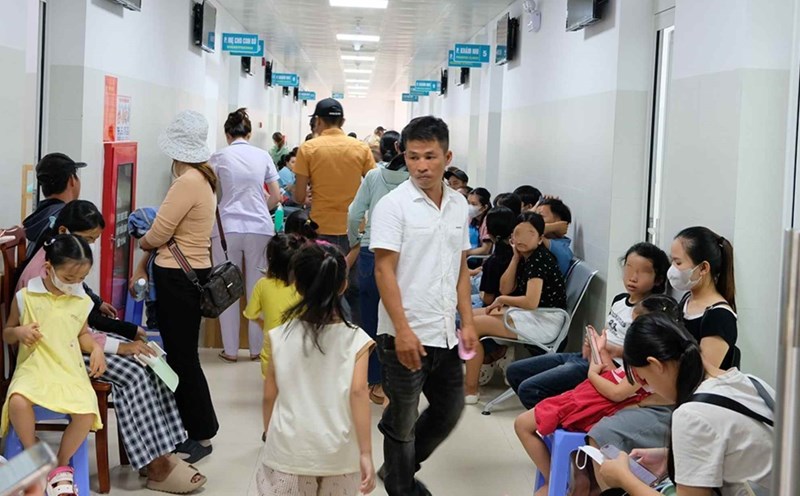Children express many different emotions and behaviors during development. While hyperactivity and harassment are normal, prolonged or excessive behavior can be a sign of abnormal problems. Early recognition helps with timely intervention, supporting children's comprehensive physical and mental development, according to Onlymyhealth.
What is abnormal behavior in children?
Unusual behavior is a manifestation or habit other than the normal development of children of the same age. Distinguishing abnormal behavior from normal behavior is not easy because children always change their behavior with each stage of development. Below are the classification of behavioral manifestations in three main age groups:
Behavior in preschool children (Before school age)
Normally behavior: Preschool children are often angry, stubborn and have difficulty controlling their emotions. However, children are still learning to regulate emotions and are gradually having better control.
Unusual behavior: Children exhibit excessive emotions for many days, uncontrollable emotions, aggressive behavior such as beating or not listening to adults. This is a sign that needs attention.
Behavior in school-age children
Normally behavior: At this age, children begin to understand and control improvised emotions better, knowing how to solve problems on their own. Anger gradually decreases and children tend to mature.
Unusual behavior: Children often do not listen to parents, teachers do not complete their assigned learning and work tasks, or cause trouble with friends or destroy objects to express anger.
Behavior in adolescents
Normally behavior: Teens experience many emotional changes, sometimes expressing opposite attitudes or arguing with adults. However, they can still control their anger and balance their emotions after a while.
Unusual behavior: Tieners show aggression, impatience, overreactions to small situations, often causing hardship, dis listen and difficulty controlling emotions.
Warning symptoms of unusual behavior in children
Parents and caregivers need to pay attention to the following signs to promptly detect behavioral problems in children:
Difficulty controlling emotions: Adults are often overly angry or frustrated, affecting their social skills and daily activities.
Poor Voltage Control: act suddenly, do not think carefully, can harm yourself and others.
Disciplinary issues: Frequently violating regulations at school or family, not complying with requirements despite reminders.
Difficulty in social communication: Children are shy about communication, do not integrate with friends, and are easily isolated.
Early sexualization: Sexual behavior or speech that is not appropriate for age, may be caused by trauma or abuse.
Self-harm: Causing injuries such as cutting, hitting the head, requiring immediate medical attention.











